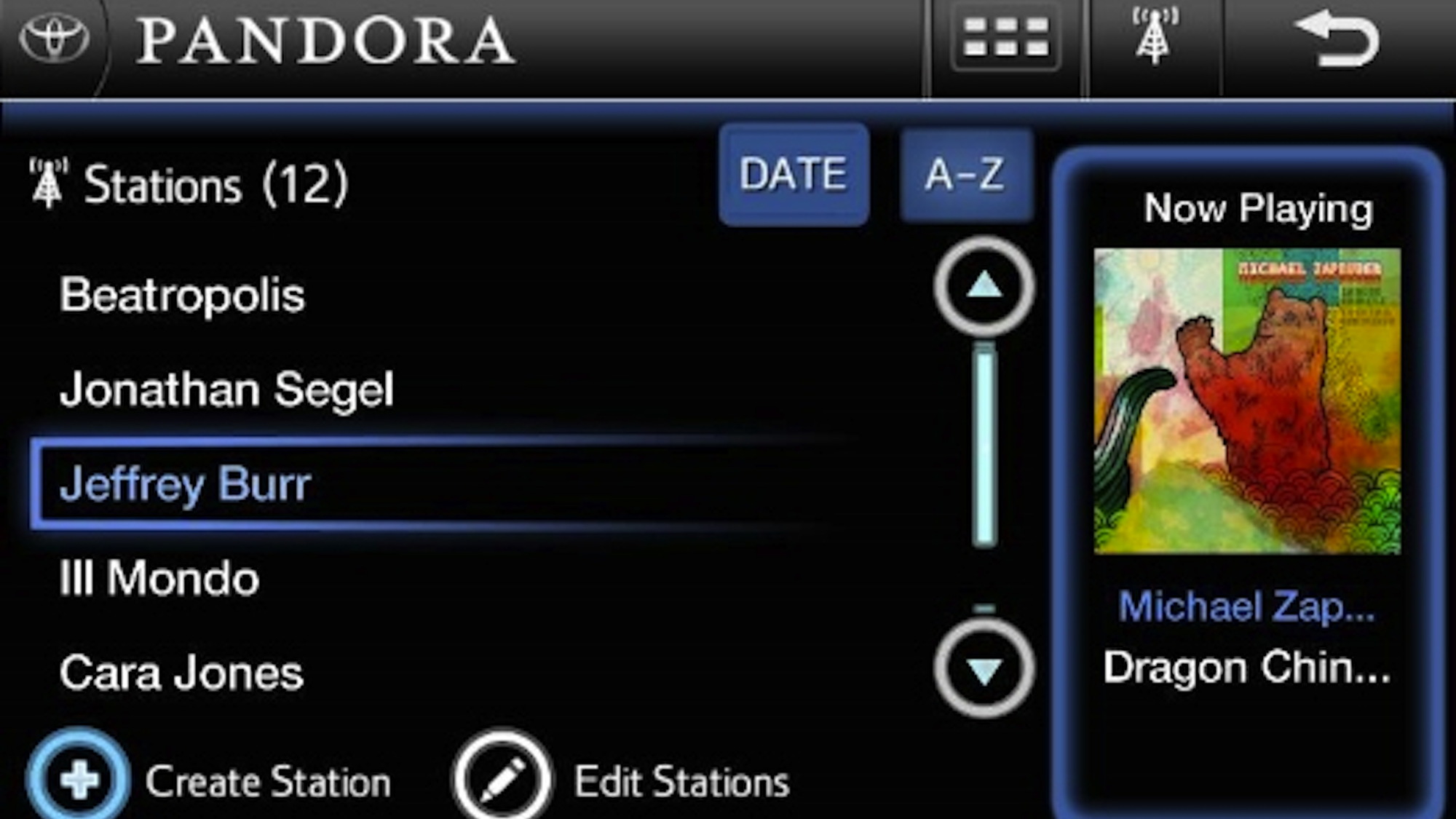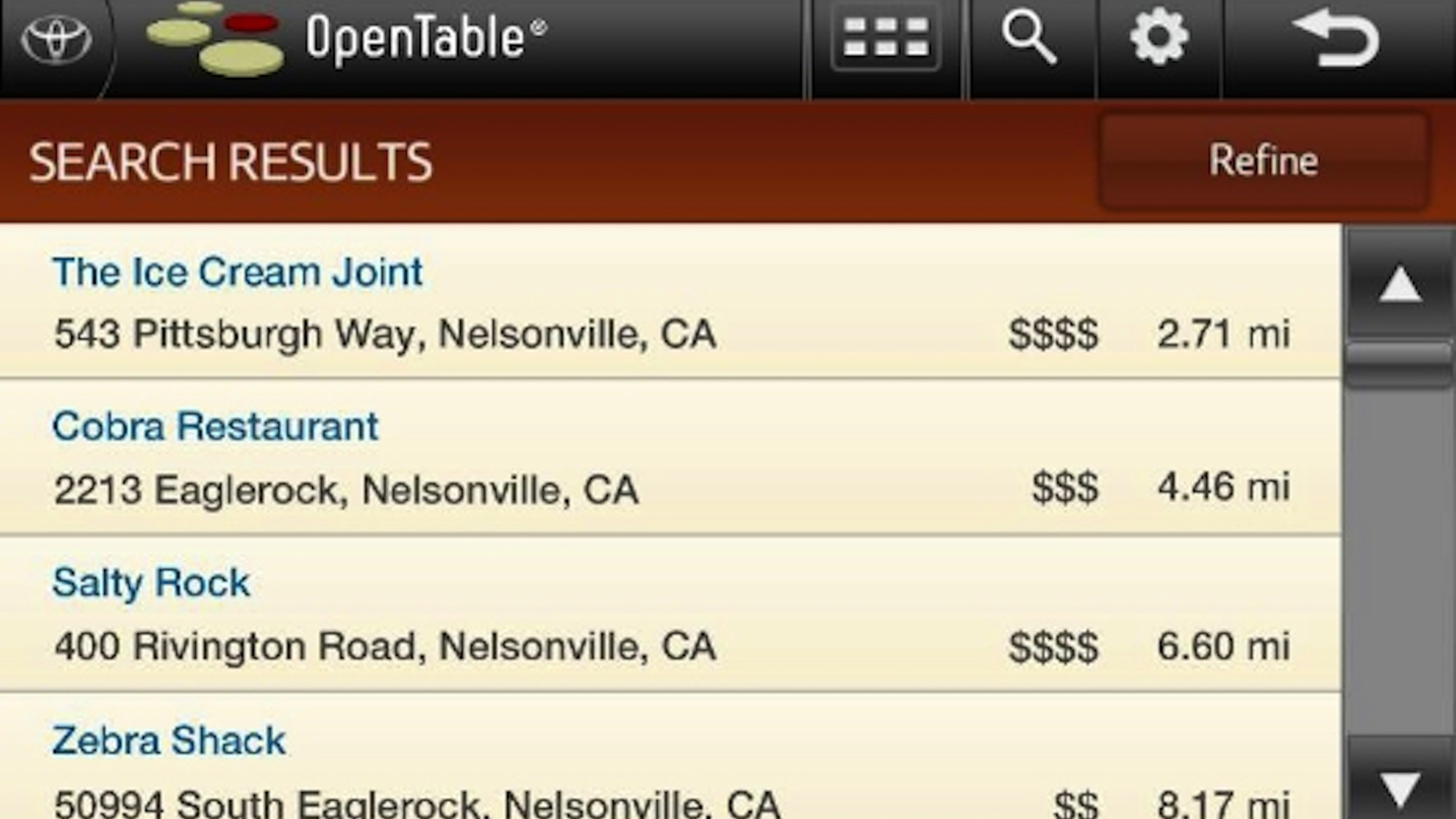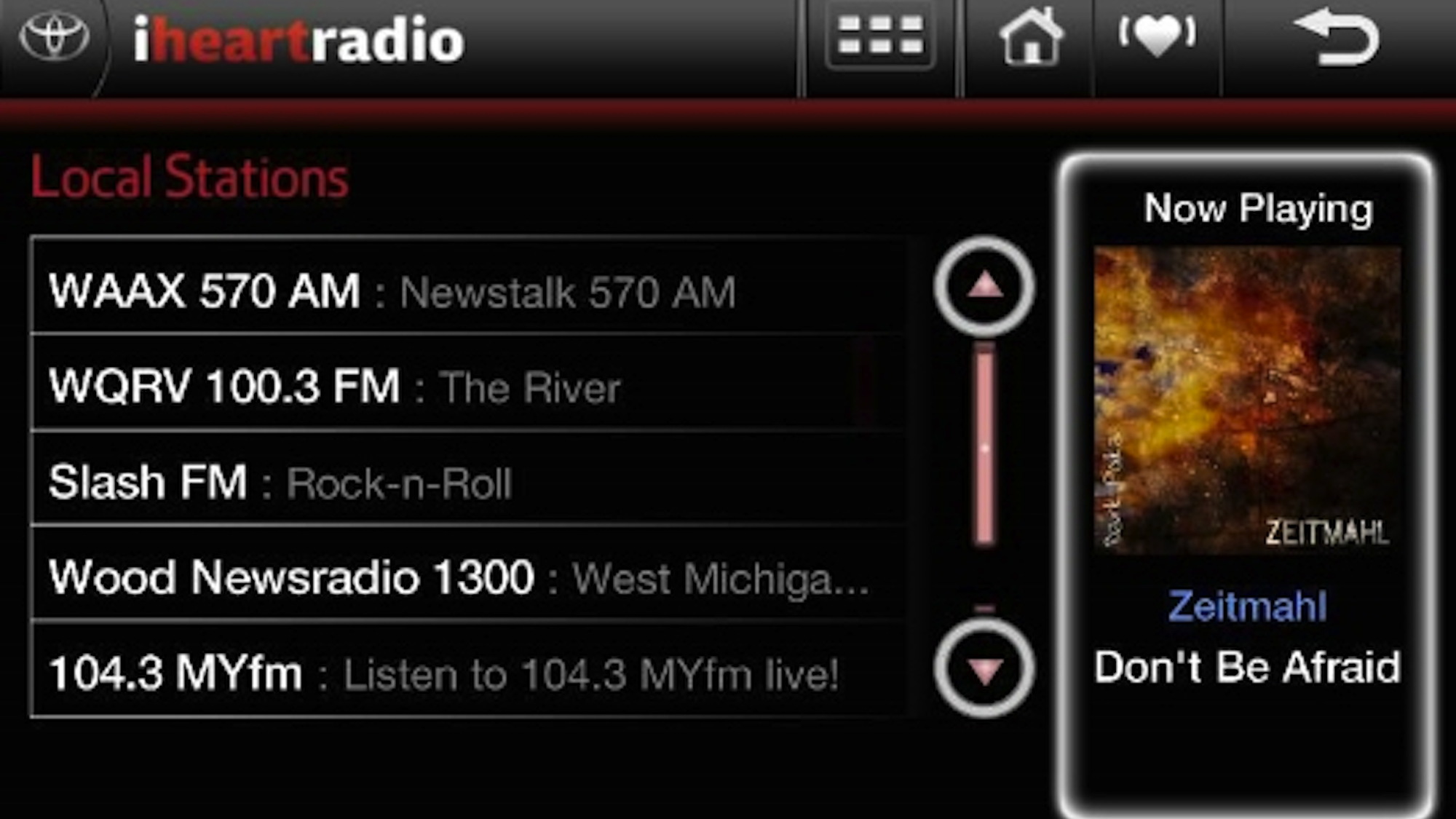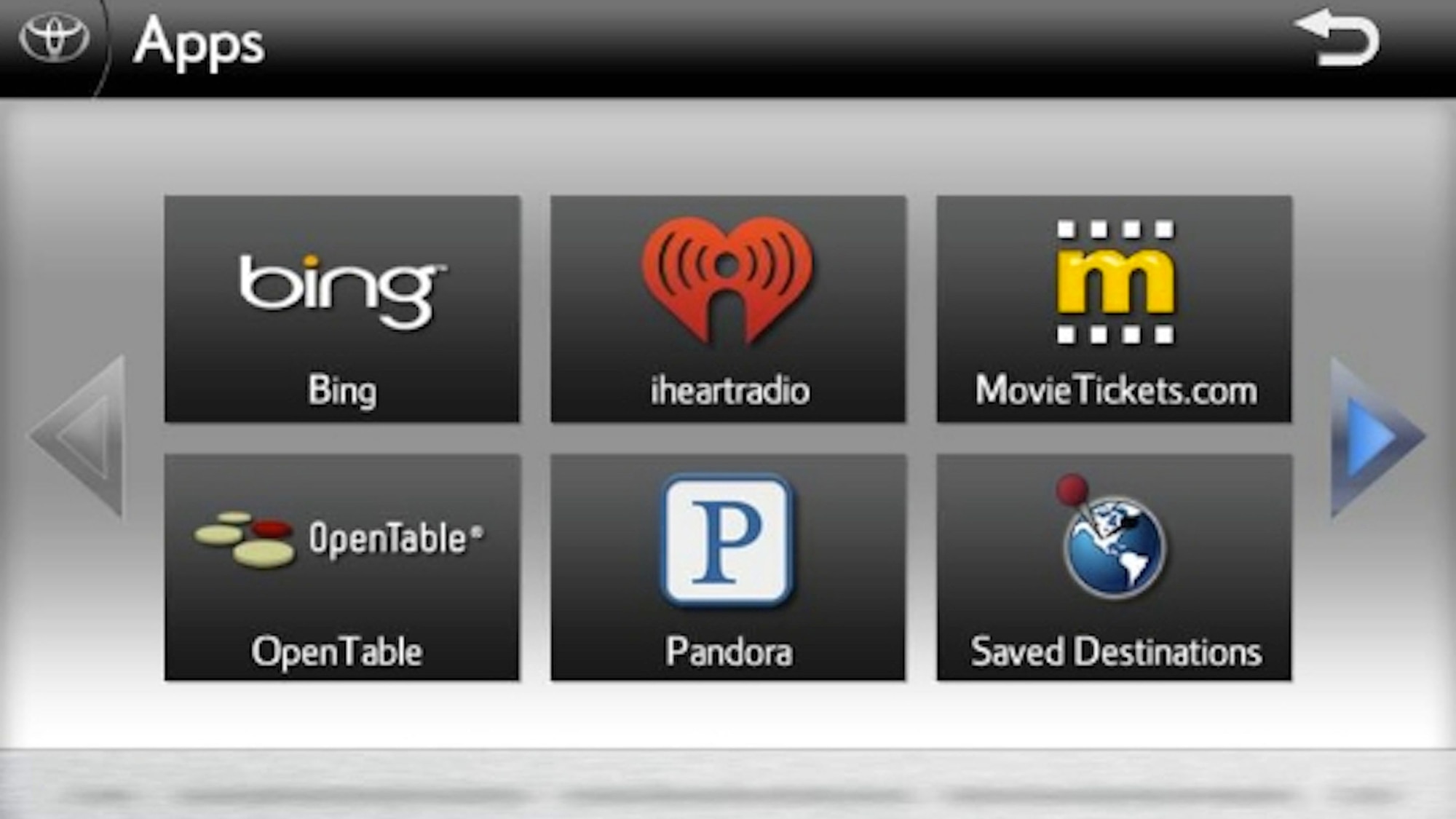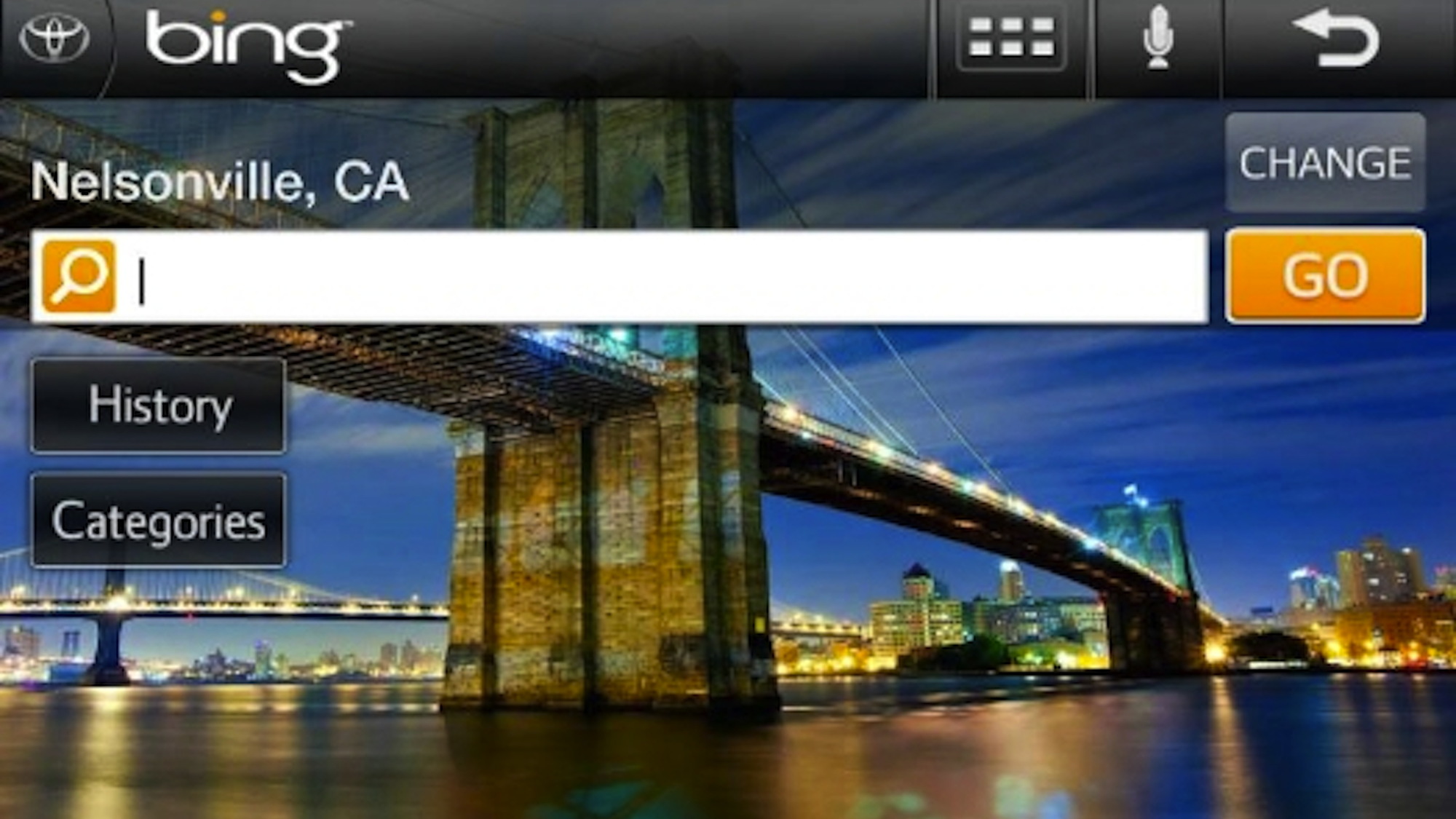When the 2012 Toyota Prius V arrives sometime, we hope, this year--it's been delayed by the aftermath of the Sendai tsunami--it will be one of the first Toyota vehicles to showcase Entune, the automaker's new telematics service.
With Entune, which was unveiled earlier this year at the 2011 CES, Toyota's skipping the concierge-style services that have been the hallmark of GM's OnStar and are now rolling out in similar form across the Hyundai lineup in the form of Blue Link. Instead of human operators, Toyota's leveraging cloud computing and seizing the app-store zeitgeist to bring its cars in-car Web searches, streaming audio, even on-the-go movie ticket purchase.
Jim Pisz, corporate manager, Advanced Technology Department, Toyota Motor Sales, U.S.A., Inc., says Entune is one of the first telematic systems to be hosted in the cloud, via real live servers sitting on Microsoft real estate in Washington. It's also the first suite of services to be exclusively powered by MS' Bing search engine--while Google owned the beachhead with in-car mapping and search on everything from BMW to Benz.
Entune is straightforward, at least to anyone who's downloaded an app to their mobile phone. The Entune app is loaded on to the driver's smartphone (including flavors of BlackBerry, Apple and Android) and the phone is paired to the car via Bluetooth, which also can deliver streaming music loaded on the portable device.
Bing is one of five apps that will be available on the Entune home screen, which shares LCDs with navigation systems when so equipped. From the home screen, drivers will be able to choose Bing for searches, Clear Channel's iheartradio or Pandora for streaming audio, MovieTickets for entertainment, and OpenTable for restaurant recommendations. At a full vehicle stop, these apps can be accessed via the LCD touchscreen; when the car is moving, any command requiring more than a single tap on the screen will require the driver use voice commands, which can be triggered through a steering-wheel-mounted switch.
The result: you can perform natural-voice searches through Bing and add them to the car's information base. Seek out "the nearest Starbucks," and Entune presents you with a list of locations, from which you can set a destination and add to your favorites list, if you want.
The mobile Entune app also grants access to some OnStar-like services, such as remote starting and unlocking, while an Entune area on the Toyota.com web site lets drivers tailor some services and settings to their own profile.
However, the Entune world isn't an open environment. Pisz explains Toyota wants to limit how apps are introduced to the mobile environment, citing a relatively free ecosystem like Apple iTunes (savor the irony) as something the automaker isn't interested in providing. That's why it's working on a Twitter app--but why you won't be able to reconfigure Entune's home screen to load one on your own until Toyota is ready.
Entune also allows two-way text messaging via voice, in the same way Ford's SYNC works. Entune will read back incoming SMS messages in its synthetic-sounding voice, and will allow the driver to respond from a set of 16 stock responses by choosing one on the touchscreen or by voice command.
With Entune's built-in access to functions like Bing Maps, there's a redundancy to in-car GPS and satellite radio that's striking. It's not difficult to see automakers moving swiftly to cloud-based, data-driven services, becoming connectivity experts and monthly-fee collectors, rather than expensive hardware engineers. Left unexplained: what that does to drivers' cellphone bills as the 3G and 4G data usage spikes.
Entune will bow in the Prius V wagon (the "V" isn't for "five," but for "versatile," Pisz explains) but by the end of the year it will be introduced into the Camry and Tacoma lineups--which suggests heavy facelifts or model-cycle replacements for both of those aging vehicles are imminent.
